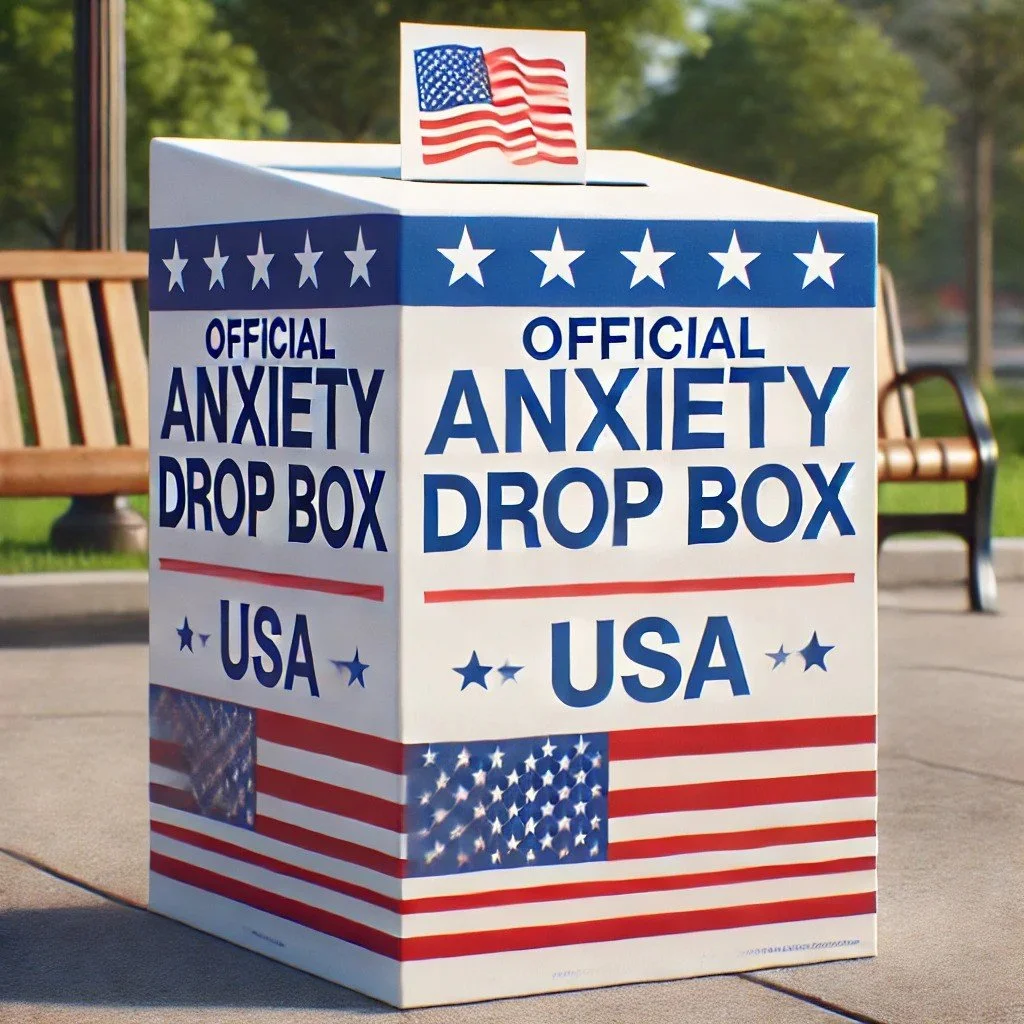Is It Anxiety or Nervous System Dysregulation?
You’re feeling on edge. Maybe your heart races for no clear reason, or you can’t concentrate no matter how much you try to “calm down.” You’ve Googled anxiety. You’ve tried meditation apps. But nothing really connects with how pervasive your unease is.
What if what you’re experiencing isn’t just anxiety, but a deeper issue rooted in your nervous system?
We often see clients wondering the same thing. Understanding the difference between anxiety and nervous system dysregulation can make a huge difference in finding the right path to healing.
Let’s break it down.
What Is Anxiety?
Anxiety is a mental and emotional response to perceived threats, usually focused on the future. It often revolves around specific worries, such as:
“What if I mess up this presentation?”
“What if I get sick while traveling?”
“What if my partner leaves me?”
It tends to involve repetitive thinking, racing thoughts, and uncomfortable body sensations around imagined outcomes. It’s your mind trying to regain control by overanalyzing. While anxiety can feel overwhelming, it’s often tied to something your brain can name.
Common signs of anxiety:
Persistent worry about future scenarios
Overthinking and rumination
Avoidance of specific people, places, or tasks
Trouble sleeping due to racing thoughts
Physical symptoms like restlessness, tightness in the chest, or GI issues
What Is Nervous System Dysregulation?
Nervous system dysregulation, on the other hand, isn’t always tied to clear thoughts or fears. It’s a state of chronic activation or collapse in your body. It is often caused by unresolved trauma, prolonged stress, or even medical conditions that affect your stress response (like chronic pain, autoimmune issues, or hormonal imbalance).
Rather than worrying about a specific outcome, you may feel generally unsafe in your body or environment, even when there’s no obvious threat.
Signs of nervous system dysregulation:
Feeling constantly “on edge” or shut down
Sudden irritability or emotional overwhelm without a clear trigger
Trouble staying present in your body (e.g., dissociation or zoning out)
Chronic fatigue, digestive issues, or unexplained physical symptoms
Emotional numbness, apathy, or detachment
Difficulty responding to everyday stressors in a proportionate way
This isn’t about weakness. It’s about a nervous system that hasn’t learned how to return to balance.
Key Differences at a Glance
Nervous System Dysregulation
General sense of unease or dysregulation
Trauma, chronic stress, or body-based triggers
Body-based, often vague or overwhelming
"Something feels wrong and I don’t know why"
Anxiety
Specific future-oriented worries
Thoughts and perceived threats
Thought-heavy, looping mind
"I’m worried about something happening"
How Holistic Therapy Can Help Anxiety and Nervous System Dysregulation
Whether you’re dealing with anxiety, nervous system dysregulation, or both (which is common), holistic therapy offers a layered, compassionate approach to healing.
Treatment for Anxiety
For anxiety rooted in thought patterns and specific worries, therapy focuses on:
Identifying and challenging unhelpful thinking
Building emotional resilience and self-trust
Mindfulness practices to interrupt rumination
Developing tools to manage worry and increase tolerance for uncertainty
A skilled anxiety therapist can help you notice your triggers, rewrite anxious thought loops, and build new mental habits.
Treatment for Nervous System Dysregulation
When the issue is more somatic, treatment involves partnering with the body, not just the mind. This may include:
Grounding exercises and somatic resourcing
Breathwork and gentle movement to support regulation
Co-regulation with a safe, attuned therapist
Trauma-informed practices that help restore a sense of safety in the body
We don’t try to “override” the body—we listen to it and work with it.
Holistic Care: Sometimes It’s More Than Just Therapy
Because the nervous system is influenced by so many factors, healing often involves an integrative approach, especially when symptoms are complex or longstanding.
In addition to therapy, we may recommend exploring:
Psychiatric support for medication evaluation if symptoms are intense or interfering with daily life
Gentle nutrition to address nutrient imbalances or inflammation that affect mood and energy
Lifestyle adjustments like sleep hygiene, screen time reduction, and nervous system-friendly movement (think: walking, tai chi, gentle yoga; not HIIT)
Bodywork or trauma-informed yoga to support integration and awareness
A holistic therapy lens takes all of this into account. You are more than your thoughts. You are more than your symptoms. You are a whole person—and healing works best when we honor that.
Holistic Therapy For Anxiety and Nervous System Regulation
So, is it anxiety or nervous system dysregulation? Sometimes it’s one. Often, it’s both. But the good news is: you don’t have to figure it out alone.
Whether you’re spiraling in thought or stuck in shutdown, your body is trying to protect you—and it’s possible to teach it a new way forward.
Looking for an anxiety therapist who partners with the nervous system?
We offer holistic therapy for anxiety, trauma, and chronic stress in California & Florida. Our approach blends talk therapy with body-based tools so you can feel calmer, clearer, and more connected to yourself again.
Book a free consultation with a holistic anxiety therapist in Los Angeles, San Francisco, or anywhere in California or Florida.

























